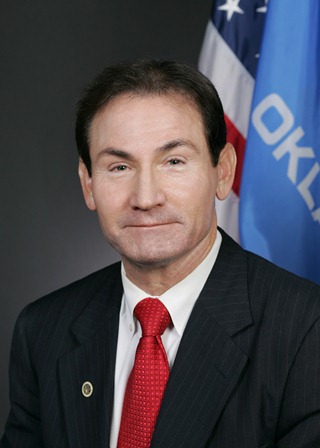In order to provide equal access and equal opportunity to people with diverse abilities, this site has been designed with accessibility in mind. Click here to view
Bill filed to use district and local dedicated funds for superintendent pay
 Sen. Ron Sharp
Sen. Ron Sharp
Following public outcry about school funding and concern over high administrative salaries, Sen. Ron Sharp filed legislation Friday to make superintendent salaries a completely local decision. Senate Bill 60 would require superintendent salaries and fringe benefits to be paid with only district (ad valorem dollars) and dedicated local funds. The bill would stop any state appropriated dollars from being used for the salaries in order for them to be diverted to the classroom.
“Schools boards already decide how much their administrators make but this bill would ensure that not only will the decision be completely local but the funds for them will be as well,” said Sharp, R-Shawnee. “I think when school boards have to use their local funds for superintendent salaries they’ll be more fiscally conservative and we’ll see more state funds going into the classrooms where they should be.”
SB 60 would apply to those positions coded under the Oklahoma Cost Accounting System (OCAS) as a superintendent or elementary superintendent. It would prohibit the board of education of an independent district or an elementary school district (a dependent district) from entering into a new contract or renewing a contract with a superintendent using state-appropriated dollars for salary or fringe benefits after July 1, 2019.
If a superintendent is also a principal, counselor or part-day teacher, the bill would only apply to the portion of his/her salary that is “coded” as superintendent. Any other job titles would still be paid with state dollars.
“This should also encourage administrative consolidation among districts if local dollars are insufficient to pay for superintendent salaries,” explained Sharp. “It will make these salaries and fringe benefits a 100% local decision as it should be.”
Sharp noted that the legislature does not set or control administrative salaries. It only sets the minimum teacher salary schedule. SB 60, however, would ensure that local districts would not only control the decision but the funds that pay for superintendent salaries.
 Oklahoma Senate
Oklahoma Senate

